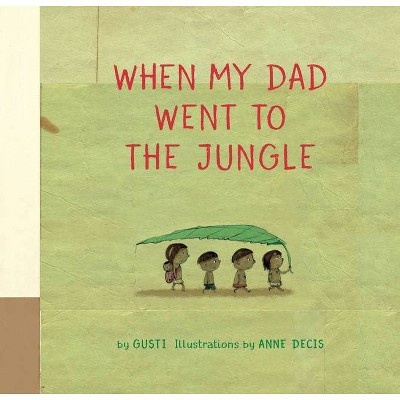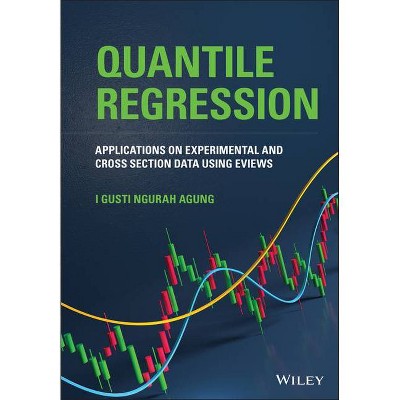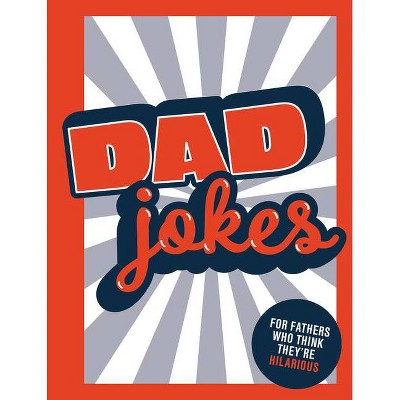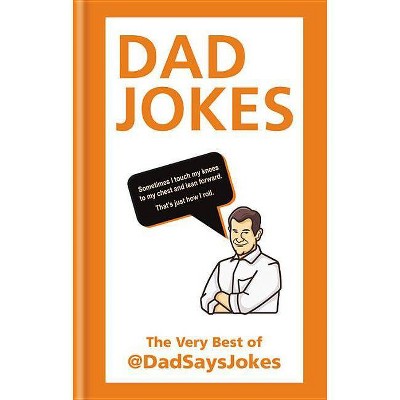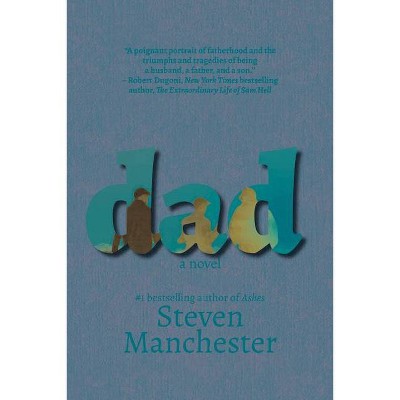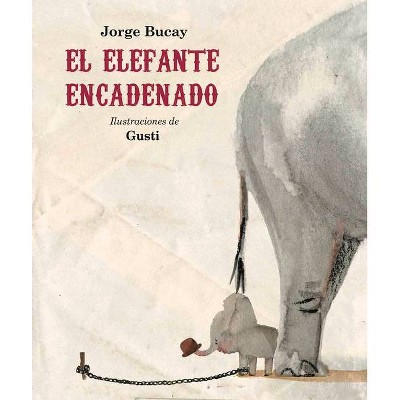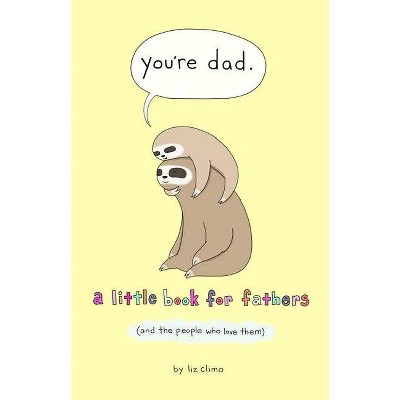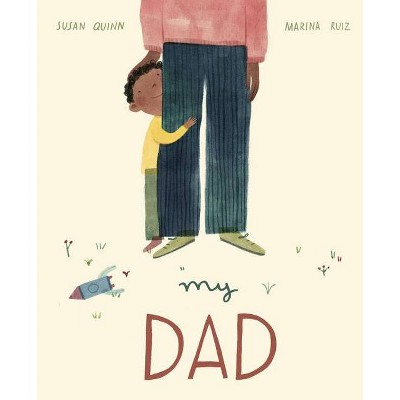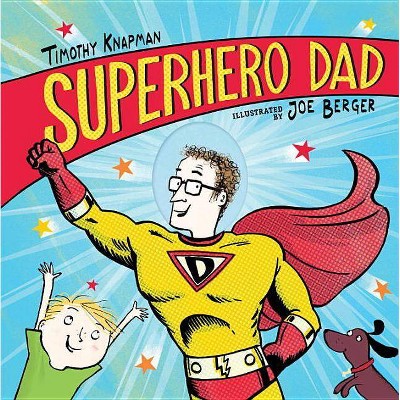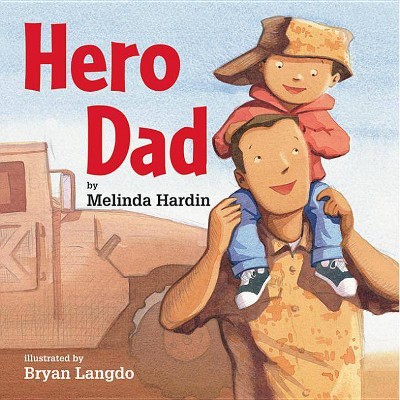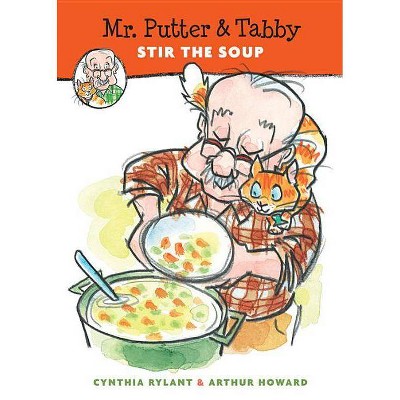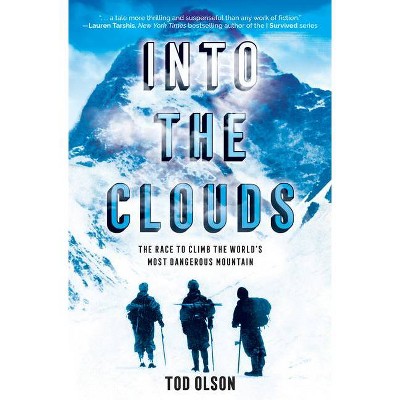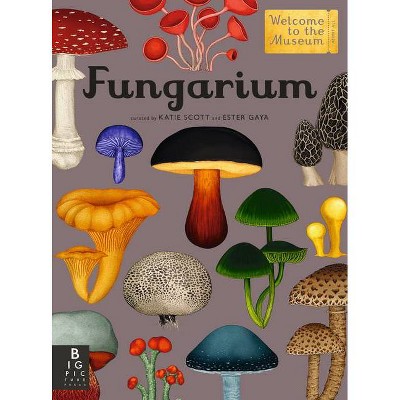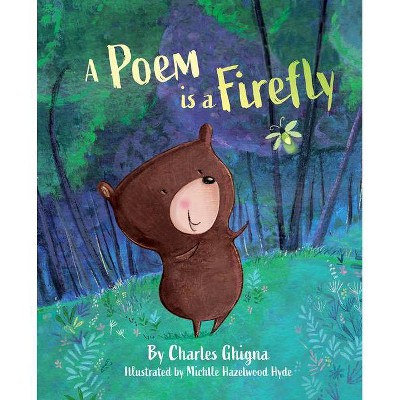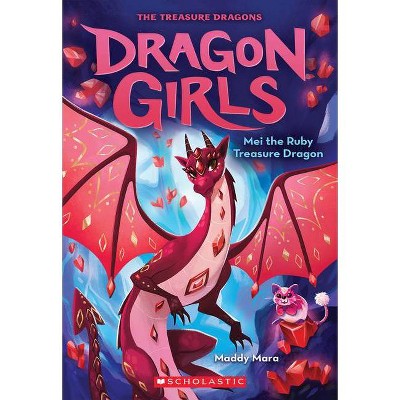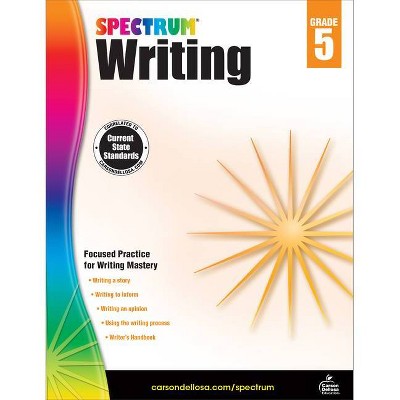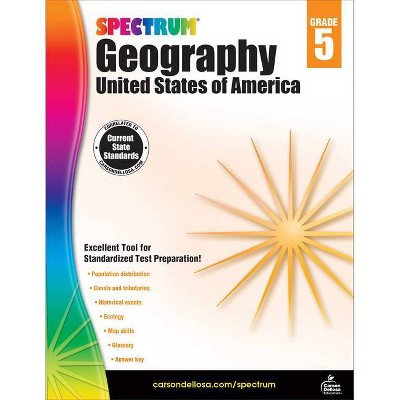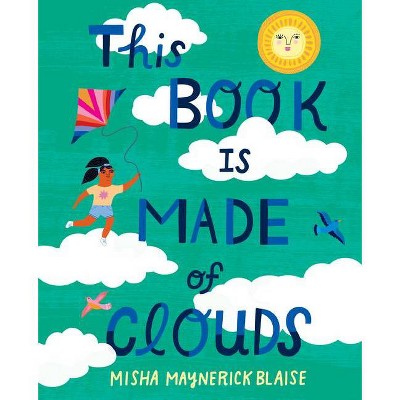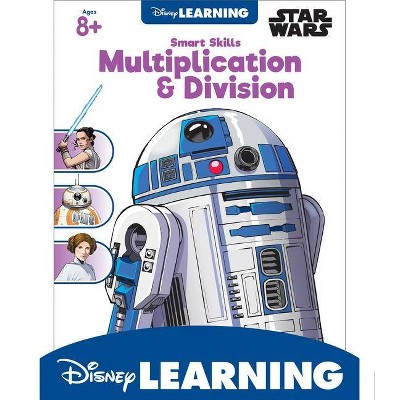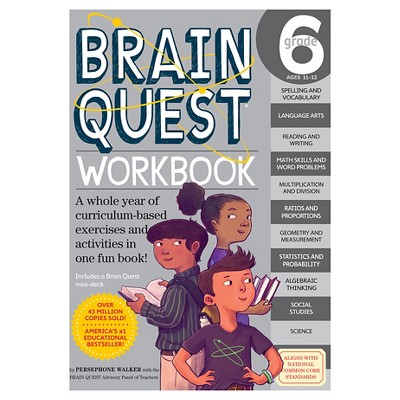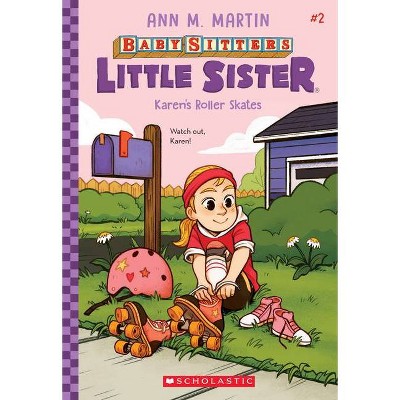Mallko & Dad - by Gusti (Hardcover)
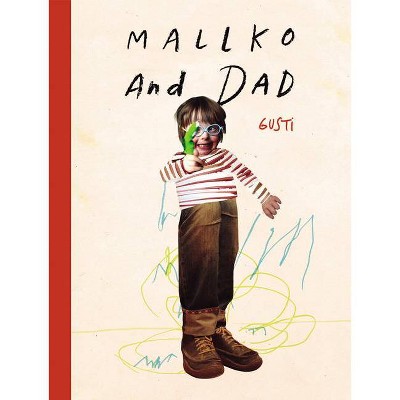
Similar Products
Products of same category from the store
AllProduct info
<p/><br></br><p><b> About the Book </b></p></br></br>A diary, journal, and illustrated story all at the same time by a father about his son with Down syndrome son, this book, selected as the best book in the disability category by the Bologna Book Fair in 2016, comes as a call and a revelation. Full color.<p/><br></br><p><b> Book Synopsis </b></p></br></br><p>A diary, journal, and illustrated story all at the same time written by a father about his son, Mallko, who has Down Syndrome. This book, which was selected as the best book in the disability category by the Bologna Book Fair in 2016, comes as a call and a revelation.</p><p>Born in Argentina, <b>Gusti</b> studied advertising design at the Escola d'Art Fernando Fade and has lived in Europe since 1985. He first worked in Paris and currently lives in Barcelona where, as well as working as an illustrator, he also gives classes in illustration at schools, libraries, and cultural centers. He co-founded the nonprofit association Windown-La Ventana, which works towards building a more inclusive society. Gusti lives with his family in Barcelona.<p/><br></br><p><b> Review Quotes </b></p></br></br><br><b>A CBC Hot Off The Press Selection of November 2018</b><br> <b>An <i>Outside in World</i> Book of the Month of February 2019</b><br> ★ In simple text and a collage of sketches, comics, photos, handwritten notes, and even a picture book within the book, Gusti candidly depicts the ups and downs of life with Mallko. Parents and siblings of disabled children will find a spectrum of emotions reflected in Gusti, and Gusti's wife and older son show how family members can support one another. Despite the simple language, Gusti's message of acceptance seems particularly, earnestly, addressed to parents. --STARRED REVIEW, <i>Kirkus Reviews</i><br> ★ Deeply affecting and sometimes funny, this scrapbook-style memoir records Argentinian artist Gusti's journey toward unconditional love for his son, Mallko, identified as a child with Down syndrome shortly after his birth. [...] Gusti's early inner conflict may make this a tough read for younger readers--in one moment, he confesses "I DID NOT ACCEPT HIM," the words printed in huge black letters across two pages. But his naked honesty offers balance to his eventual understanding that "Mallko was already complete. And not only that: I realized he was great. The greatest." --STARRED REVIEW, <i>Publishers Weekly</i> ★ 'Sometimes having kids is like making a drawing, ' Argentinian artist Gusti writes, 'it doesn't come out quite the way you were imagining it.' It quickly becomes obvious that the kid he's referring to is his son Mallko, who was born with Down syndrome. 'At first I did not accept him, ' Gusti candidly admits but time will change that and it's soon obvious that he has come to love his son, whom he now calls 'the greatest.' This unusual book offers a glimpse of their quotidian life together, along with the boy's mother and older brother, who loves his little brother unconditionally. In form the book resembles a scrapbook with its text often hand lettered and filled with the artist's naïve illustrations, sketches, and the occasional small photograph showing Mallko playing, bathing, drawing, eating (or refusing) breakfast, doing, in short, all of the daily things children do. The result is charming and touching but it invites the question of who the book's audience will be. Though younger children will identify with Mallko, now 11, the book's attitude and style are quite sophisticated with obvious appeal to adults. Happily, however, the book's implicit theme is a universal one: the power and importance of love.-- Michael Cart, STARRED REVIEW, <i>Booklist</i><br> As usual, Enchanted Lion Books is the press unafraid to tackle the difficult. In <i>Mallko and Dad</i> by Gusti (translated from the Spanish by Mara Faye Lethem), the publisher had a truly original work on its hands. The true life story follows artist Gusti, a Barcelona-based artist, and his journey when he discovered that his second son was born with Down syndrome.... the book is written in a kind of notebook style with an emotional rawness uncommon in children's literature. ... As Gusti recounts how he had to grow as a person to understand how great his own kid was, we are treated to innumerable photographs and drawings of Mallko. Gusti floods you with his son's life and presence and day-to-day activities. The book is full of comics about their daily routine and interviews with family members. His wife talks openly about how she worried for Mallko early on because she knew his dad was "having trouble understanding". One might wonder if this all sounds as if the book is written more for adults than children, but I think there's great value in showing someone dealing with an unexpected disability in a family member. I can see parents of older siblings sharing this book when them when a new baby has a developmental disability that is going to make life different in the foreseeable future. --Elizabeth Bird, Evanston Public Library, <i>School Library Journal</i><br> I love this book!!!--Liniers, 2018 Eisner Award and Inkpot Award Winning Cartoonist<br> a clarion call for parents to realize that their children don't need to change to be loved, they are worthy of it always. --Tasha Saecker, <i>Waking Brain Cells</i><br> "Argentinian artist Gusti presents a candid, profound and thoughtful memoir... This is an amazing and uplifting book: sometimes funny and sometimes sad, with a real rawness to it." --<i>Outside in World</i><br> There are moments in this book I won't soon forget. There is Gusti noting that Mallko's mother never had a problem loving her son whole-heartedly. ('That's how moms are and there's a lot we can learn from women, ' he writes.) There's the heart-shaped rock Gusti's friend sends him, along with a poem, before one of Mallko's hospital visits to check the health of his heart; the stone is 'like the heart of the male imperial eagle, ' his friend tells him. And there's a spread in which Gusti draws himself and Mallko engaging in play, pretending to be vampires, Mallko's beaming face and laughter so much sunshine on the page. This is as it should be: a parent accepting his child for who he is, not whom he was expected to be. ... In the end, Gusti returns to large font in a spread declaring that ''accepting' is willingly and gladly receiving what we've been offered.' Wise words from an introspective, honest, and emotionally powerful tale of parent and child. --Julie Danielson, <i>Kirkus Reveiws</i><br> Sometimes Gusti's pictures feel almost manic, splashed all over the pages, which are treated like open canvases. There are photorealistic drawings in colored pencil, anxious pictures in pen, and countless cartoons and comic panels. Taken together, this assortment of styles represents a mind shuttling between feelings of love, fear, uncertainty, hope and gratitude -- a dizzying cocktail that may feel familiar to many parents. [...] Down syndrome, for Gusti, becomes an opportunity to examine and more deeply inhabit his love for his son, whose world, as Gusti illustrates it, is filled with wonder. For instance, amid a sketchbook-like series of drawings of Gusti and Mallko riding tricycles, Gusti writes, 'Every day I tell myself: Don't forget to play.' In one of those drawings, Mallko looks directly at the reader with a piercingly curious gaze, as if asking: 'What's your problem? C'mon, let's do something fun.' Dozens of images of Mallko drawn in every imaginable mood beckon the reader into his illuminated world. [...] In Gusti's drawings, I recognize countless shadings of what love feels like. --Craig Morgan Teicher, <i>The New York Times</i><br> <i>Mallko and Dad</i> strikes quickly and with searing frankness ... It's an intimate book, and Mallko's colorful personality shines through, in large part because of Gusti's innovative, almost eccentric book design. He uses a variety of fonts and font sizes, as well as handwritten notes, photographs, collages, and drawings by him and Mallko in crayon, pen, pencil, and marker. The book also features transparent layovers to translate handwritten notes from Spanish to English without losing the raw urgency of Gusti's original work. Winner of the best book award in the disability category at the Bologna Book Fair, <i>Mallko and Dad</i> will strike a resonant chord for empathetic readers everywhere, but perhaps most for the nervous new parents of children with Down syndrome. For them, <i>Mallko and Dad</i> might provide assurance that although life with a Down syndrome child might be different than expected, it can be just as wonderful. -- Peter Dabbene, <i>Foreword Reviews</i><br> "To see a father's embracing of who his son is--and a strong and joyful embrace at that--is a powerful thing to witness as readers."--Michelle Sterling, <i>Avery and Augustine</i><br> I love how personal it is ... deep and beautiful but also light hearted and encouraging. I felt like I got such a taste of the dad's feelings but also like I was in his son's world, with the chaotic at times, playful, and beautiful perspective. It reads passionate to the adult & I could tell [my son] 'got it' ... he was drawn to the drawings--he laughed at some of the pictures, even. I could tell the artist was trying to create the type of book his son would love to look at and help others feel their world. I cried reading it and brought it to my friend who has a two year old with DS--she glanced at a few pages and was in tears. I also love that the original text was left, and translations were written on top to preserve it. It felt powerful that all those feelings are the same, culture wide. It's a powerful book and something I will treasure forever.--Tiffany B., Mother of a child with Down syndrome; Portland, OR<br><br><p/><br></br><p><b> About the Author </b></p></br></br>Born in Argentina, Gusti studied advertising design at the Escola d'Art Fernando Fade and has lived in Europe since 1985. He first worked in Paris and currently lives in Barcelona where, as well as working as an illustrator, he teaches illustration classes at schools, libraries and cultural centers. Gusti also co-founded the nonprofit association Windown-La Ventana to work for a more inclusive society. He lives in Barcelona, Spain.
Price History
Price Archive shows prices from various stores, lets you see history and find the cheapest. There is no actual sale on the website. For all support, inquiry and suggestion messages communication@pricearchive.us
